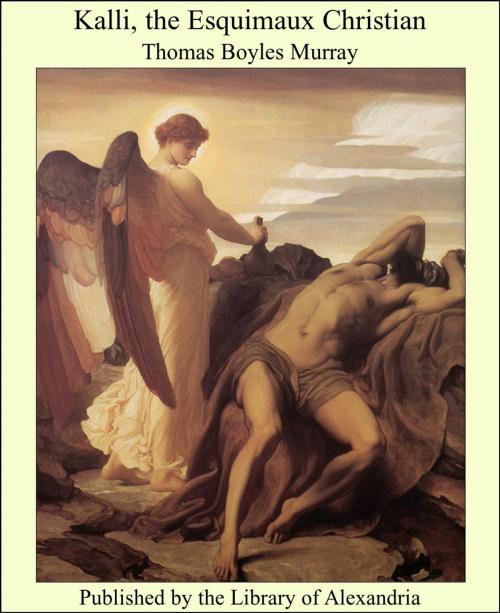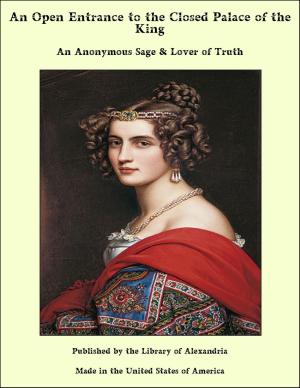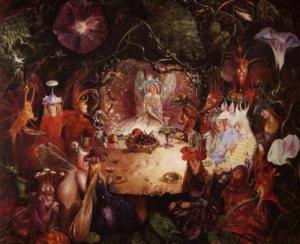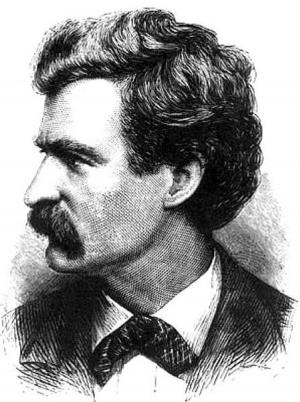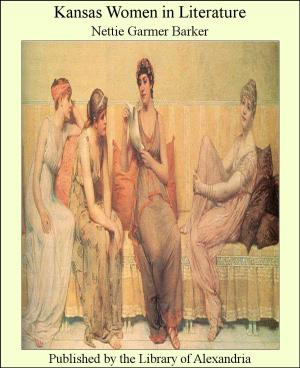Kalli, the Esquimaux Christian
Nonfiction, Religion & Spirituality, New Age, History, Fiction & Literature| Author: | Thomas Boyles Murray | ISBN: | 9781465531513 |
| Publisher: | Library of Alexandria | Publication: | March 8, 2015 |
| Imprint: | Language: | English |
| Author: | Thomas Boyles Murray |
| ISBN: | 9781465531513 |
| Publisher: | Library of Alexandria |
| Publication: | March 8, 2015 |
| Imprint: | |
| Language: | English |
THE origin of the limerick — like so much of the merrier side of mankinds story — is lost, forgotten somewhere in the grim chaos of making history. No matter. Its perpetual rebirth suffices. It may be said, however, that the limerick is the most ancient verse form known, as it were, to the human ear. It has therefore won the sanction of time if not of the puritans, who, in a shrewd effort to avoid extinction, invented sin, toward which they appear remarkably ungrateful. Dr. Oscar Wells Toomwhite, PhD, Oxford's late great Egyptologist and author of the song hit "Mummy", said that in the times of the more boisterous pharaohs such as the Ptolemys, death— and by no means a pretty one—was the penalty for a bad limerick. Unfortunately, none of the Egyptian rhymes has come down to us, perhaps due to the work of unpoetic priests who held them to be unprintable or, as the Egyptians doubtless expressed it, unchiselable. Among the Greeks, Socrates and Aristophanes were, according to chroniclers, skilled composers of limericks, though again none are preserved for our culture and guidance. (Plutarch informs us that the stanzas of Socrates were savagely destroyed by his virago-wife Xanthippe — at whom they were mostly directed — after the great philosopher's draught of the hemlock. She burned many but ate the more damaging, fearing that even ashes might be read and immortalized.) In Roman times, we find that the pungent Horace and even the stately Virgil were leaders of thought in limerick form, turning blithely from their sonorous odes and majestic epics to the more trenchant favorite. Mark Antony is said to have despatched — by fast trireme — many a blunt, soldierly rhyme to his sultry but not unhumorous queen, and she to have replied with many a quippy papyrus born on the wings of a trained ibis. (This intelligent bird made but one mistake in its discreet lifetime, when it descended absent-mindedly into Caesar's patio instead of Antony's.) XT is not surprising that during the Dark and Middle Ages the gay limerick is nowhere to be heard. With the Renaissance and the rise of English literature, especially during the glorious Elizabethan period, the limerick flowers like some merrily winking rose. Shakespeare, Ben Jonson, Marlowe (unhappily knifed to his end by an inebriated limerick critic) Donne, Lyly and many Others formed their wit and philosophy to fit the epigrammatic and irresistibly rhythmic five-line frame. Indeed, Sir Philip Sidney informs us that there was no surer entree to the court of Good Queen Bess than a fetching limerick, "for her Majestie did dote upon that cheerie rhyme."
THE origin of the limerick — like so much of the merrier side of mankinds story — is lost, forgotten somewhere in the grim chaos of making history. No matter. Its perpetual rebirth suffices. It may be said, however, that the limerick is the most ancient verse form known, as it were, to the human ear. It has therefore won the sanction of time if not of the puritans, who, in a shrewd effort to avoid extinction, invented sin, toward which they appear remarkably ungrateful. Dr. Oscar Wells Toomwhite, PhD, Oxford's late great Egyptologist and author of the song hit "Mummy", said that in the times of the more boisterous pharaohs such as the Ptolemys, death— and by no means a pretty one—was the penalty for a bad limerick. Unfortunately, none of the Egyptian rhymes has come down to us, perhaps due to the work of unpoetic priests who held them to be unprintable or, as the Egyptians doubtless expressed it, unchiselable. Among the Greeks, Socrates and Aristophanes were, according to chroniclers, skilled composers of limericks, though again none are preserved for our culture and guidance. (Plutarch informs us that the stanzas of Socrates were savagely destroyed by his virago-wife Xanthippe — at whom they were mostly directed — after the great philosopher's draught of the hemlock. She burned many but ate the more damaging, fearing that even ashes might be read and immortalized.) In Roman times, we find that the pungent Horace and even the stately Virgil were leaders of thought in limerick form, turning blithely from their sonorous odes and majestic epics to the more trenchant favorite. Mark Antony is said to have despatched — by fast trireme — many a blunt, soldierly rhyme to his sultry but not unhumorous queen, and she to have replied with many a quippy papyrus born on the wings of a trained ibis. (This intelligent bird made but one mistake in its discreet lifetime, when it descended absent-mindedly into Caesar's patio instead of Antony's.) XT is not surprising that during the Dark and Middle Ages the gay limerick is nowhere to be heard. With the Renaissance and the rise of English literature, especially during the glorious Elizabethan period, the limerick flowers like some merrily winking rose. Shakespeare, Ben Jonson, Marlowe (unhappily knifed to his end by an inebriated limerick critic) Donne, Lyly and many Others formed their wit and philosophy to fit the epigrammatic and irresistibly rhythmic five-line frame. Indeed, Sir Philip Sidney informs us that there was no surer entree to the court of Good Queen Bess than a fetching limerick, "for her Majestie did dote upon that cheerie rhyme."
